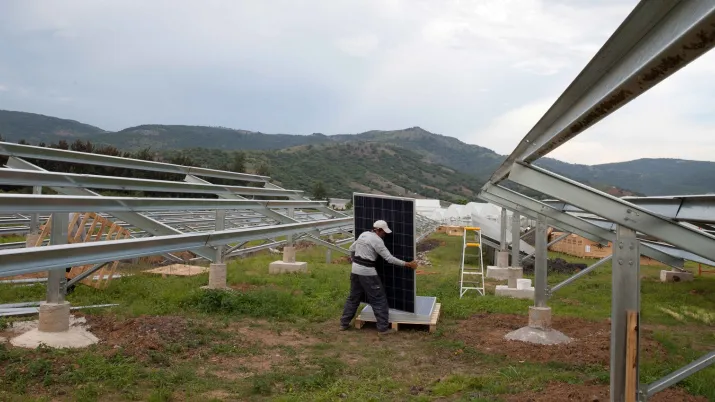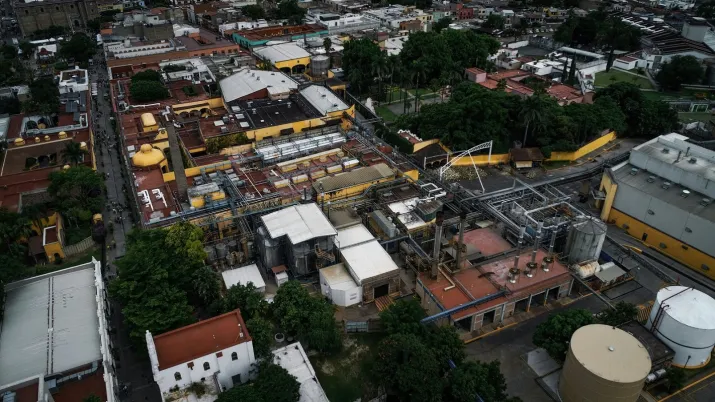Share the page
Distributive impact of green taxes in Mexico

-
Project start date
-
2022Status
Completed
-
Project end date
-
2023
-
AFD financing amount
-
57 000
-
Country and region
-
Research program
What are the distributional effects of green taxes in Mexico and how can they be quantified? The Extension of the EU-AFD Research Facility on Inequalities program seeks to answer this in collaboration with RIBOS and the researches of the Laboratorio National de Politicas Publicas (LNPP) to provide to Mexican policymakers and stakeholders timely analyses of the effects of environmental tax policies on inequalities.
Context
This research project proposes to estimate the distributive effect of gasoline taxes using a fiscal incidence considering these effects in the context of Mexico´s fiscal system, including the principal tax and spending instruments.
In 2014, Mexico’s Finance Ministry (SHCP) introduced a special tax (IEPS) on carbon as a green tax aimed at reducing the green gas emission associated with fossil fuels, mainly gasoline and diesel. However, the tax revenue (4699 million pesos in 2014) and the environmental impact of this tax are marginal: in the past decade, until 2014, this tax had a negative value, thus working as a subsidy. Since that year, it became a tax, which has grown significantly in recent years, representing close to 300 billion pesos in 2019 and 2020. This is therefore in effect by far the most important green tax implemented in Mexico today.
This analysis is of particular interest for Mexico at present because the transition from fuel subsidies to fuel taxes represents in effect the principal tax reform implemented in Mexico over the last decade in terms of both tax revenue (from -300 to +300 billion pesos in tax revenue) and distribution. Gasoline taxes have significant impacts on all the population, both directly on middle- and higher-income households through private transport, but especially indirectly for lower income households through public transport and transport costs for all goods and services, notably food. Preliminary analysis at the Fiscal Policy Equity Lab (FPEL) reveals that the increase in the indirect tax burden for the poor associated to gasoline taxes may reverse the effect poverty-reduction effect of direct transfers, even after their recent expansion.
Quantifying these impacts precisely will allow the design of compensatory instruments to protect the poorest and most vulnerable groups from the regressive effects of these taxes.
This project is part of the Extension of the EU-AFD Research Facility on Inequalities. Coordinated by AFD and financed by the European Commission, the Extension of the Facility will contribute to the development of public policies aimed at reducing inequalities in four countries: South Africa, Mexico, Colombia and Indonesia over the period 2021-2025.
Objectives
This project is a joint undertaking between RIBOS, CEQ Institute and LNPP. It seeks to estimate the effect of green taxes in the context of the overall Mexican tax system through the international methodology developed by the Commitment to Equity Institute (CEQI), using INEGI data from the Encuesta de Ingresos y Gastos de los Hogares (ENIGH) for 2014-2020, among other data sources.
This methodology will allow an estimation the effect of green taxes in the context of the overall fiscal system. This methodology facilitates comparability in time and space, and generates a wide variety of incidence indicators, including effects on the income Gini coefficient as well as income poverty using national and international poverty lines.
This project ultimately aims to provide Mexican policy makers and stakeholders with timely analyses of the effects of tax policies on inequality and poverty. The research conducted will therefore result in:
- a research paper,
- a policy brief whose analysis is based on the collaborative intelligence technique. Two sessions in which the model calibration and hypotheses will be discussed following the collaborative modeling framework. Participants in the sessions will be members of the expert network and key tax policy makers.
Research findings
You will find below the research paper related to this project:
- Distributive impact of green taxes in Mexico (July 2024)
The policy brief related to this project will be published here soon.
Contact
-
Anda DAVID
Economist, scientific coordinator of the EU-AFD Research Facility on Inequalities




